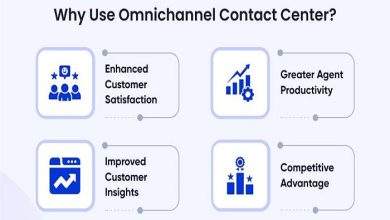
Flashcards are one of the most versatile and effective tools for studying. By breaking down information into manageable chunks, they make learning easier and help improve retention. Whether you’re a student, a professional, or someone learning a new skill, flashcards offer a structured and interactive way to master any subject. This article explores how to use flashcards effectively, advanced strategies, and a comparison of popular digital tools like Anki and Quizlet.
Why Flashcards Are Essential for Effective Learning
Flashcards excel in promoting active recall and spaced repetition, two scientifically proven techniques for enhancing memory. Active recall strengthens your brain’s ability to retrieve information, while spaced repetition helps you review material at intervals designed to maximize long-term retention. A flashcard generator can be useful for structuring these reviews, making it easier to stay organized and focused on long-term success..
Benefits of Flashcards for Learning
Here’s why flashcards are such a powerful learning tool:
- Focused Attention: Flashcards allow you to target specific topics and avoid distractions.
- Enhanced Retention: Active recall helps embed information in your memory.
- Portable and Convenient: Study anywhere with physical or digital flashcards.
- Customizable: Tailor flashcards to your learning preferences and study goals.
- Engaging Format: Their question-and-answer style keeps you actively involved in the learning process.
How to Create Effective Flashcards
To get the most out of your flashcards, follow these steps for creating high-quality cards:
- Stick to One Concept Per Card: Avoid overwhelming yourself with too much information.
- Use Simple, Clear Language: Keep your text concise and easy to understand.
- Incorporate Visuals: Include diagrams, icons, or color coding to aid visual learners.
- Frame Questions Clearly: Pose questions on one side and provide answers on the other to encourage active recall.
- Organize by Topic: Create separate decks for different subjects or categories to streamline your study sessions.
Best Practices for Using Flashcards
Flashcards are most effective when used strategically. Here are some best practices to keep in mind:
Consistent Review
Set aside regular time for reviewing your flashcards. Daily or weekly sessions will help reinforce your learning and prevent forgetting.
Shuffle Your Cards
Randomizing the order of your flashcards prevents memorizing the sequence instead of the content.
Practice Both Sides
Test yourself from both directions—recalling answers from questions and vice versa. This deepens understanding and ensures comprehensive knowledge.
Focus on Difficult Topics
Spend extra time on flashcards covering challenging material to strengthen your weaker areas.
Advanced Flashcard Strategies
Once you’ve mastered the basics, try these advanced techniques to maximize your learning:
The Leitner System
The Leitner system is a time-tested method for organizing flashcards. Flashcards are sorted into levels based on how well you know them. Cards in lower levels are reviewed more frequently, while those in higher levels are reviewed less often. This system prioritizes difficult material while reducing time spent on topics you’ve already mastered.
Gamify Your Studies
Make studying fun by setting goals and rewarding yourself for reaching milestones. Use apps that track your progress and provide positive reinforcement.
Use Mnemonics
Pair difficult-to-remember concepts with memorable phrases or vivid imagery to improve recall.
Collaborate with Peers
Studying with others can help reinforce learning. Share your flashcards with classmates or study groups to gain different perspectives and insights.
Applying Flashcards to Different Subjects
Flashcards are versatile and can be used for any subject. Here are a few examples of how they can help:
- Languages: Practice vocabulary, verb conjugations, and grammar rules.
- Science: Simplify complex processes, formulas, and terminologies.
- History: Memorize dates, events, and key historical figures.
- Mathematics: Drill problem-solving steps, formulas, and equations.
- Test Preparation: Review key concepts and practice multiple-choice questions.
Digital Tools: Anki vs Quizlet Article
When it comes to digital flashcards, Anki and Quizlet are two of the most popular platforms. Both offer unique features to enhance your study sessions, but which one is right for you? Let’s dive into an Anki vs Quizlet article comparison:
Anki
- Spaced Repetition: Anki’s advanced algorithm schedules reviews at optimal intervals to improve retention.
- Highly Customizable: Users can add images, audio, and even complex formatting to their flashcards.
- Free and Open Source: Anki is available for free on most platforms, making it a budget-friendly choice.
- Detailed Analytics: Provides in-depth statistics to track your performance and identify weak areas.
- Best For: Learners tackling highly technical or dense material who want full control over their study sessions.
Quizlet
- Ease of Use: Quizlet has an intuitive, user-friendly interface, ideal for beginners.
- Interactive Learning Modes: Offers games, quizzes, and other fun ways to study.
- Collaborative Features: Users can share and access decks created by others, expanding their study resources.
- Cross-Device Compatibility: Study seamlessly on your phone, tablet, or computer.
- Best For: Visual learners and those who enjoy gamified, social learning experiences.
Choosing between Anki and Quizlet depends on your study preferences and goals. If you prefer data-driven learning, go with Anki. For a more interactive and beginner-friendly experience, Quizlet may be the better choice.
Avoiding Common Flashcard Mistakes
To maximize the effectiveness of flashcards, avoid these common mistakes:
- Overloading Cards: Stick to one concept per card for clarity.
- Skipping Difficult Material: Don’t avoid challenging topics—review them more frequently instead.
- Inconsistent Practice: Regular, scheduled reviews are critical for long-term retention.
- Passive Reviewing: Actively test yourself rather than simply flipping through the cards.
Flashcards for Test Preparation
Flashcards are particularly effective for test prep. They allow you to break down large volumes of information into smaller, digestible pieces. By reviewing consistently, prioritizing weaker areas, and using digital tools, you’ll be better equipped to recall critical information during exams.
Conclusion
Flashcards are a powerful tool for simplifying learning and improving memory retention. By incorporating active recall, spaced repetition, and advanced strategies like the Leitner system, you can optimize your study sessions and master any subject. Whether you choose traditional flashcards or digital tools like Anki and Quizlet, consistency and thoughtful practice are key. Start using flashcards today to unlock your full learning potential and achieve academic success with ease!




